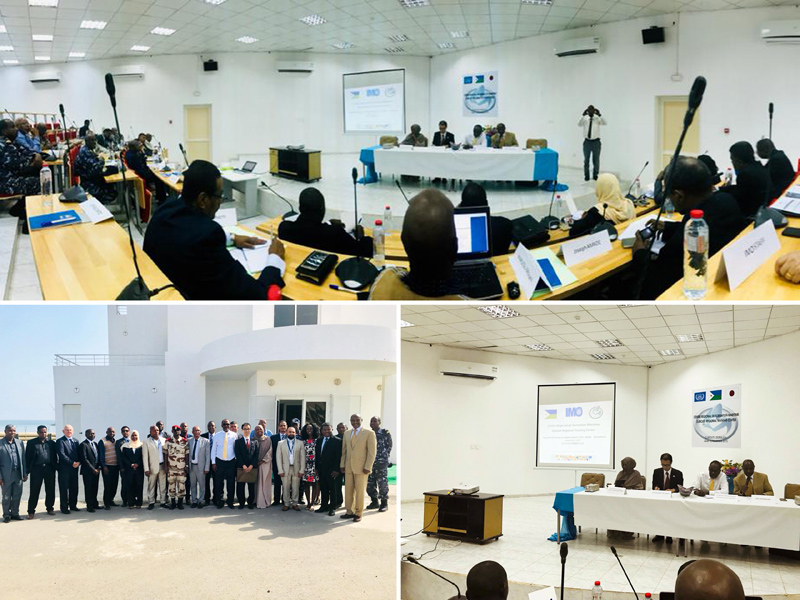The Code developed and adopted by countries in the Western Indian Ocean and Gulf of Aden – the Jeddah Amendment to the Djibouti Code of Conduct – has been a key factor in repressing piracy and armed robbery against ships operating in that region.
It covers a range of illicit activities, including piracy, arms trafficking, trafficking in narcotics, illegal trade in wildlife, illegal oil bunkering, crude oil theft, human trafficking, human smuggling, and illegal dumping of toxic waste.
To support National Focus Points involved in implementing the Code's provisions, a training workshop was held at the Djibouti Regional Training Centre (DRTC), Djibouti (24-26 September). The IMO-led workshop was the second in a series of regional maritime security courses, funded by the Government of Japan.
Formally launching the course, H.E. Koji Yonetani, Japan's Ambassador to the Republic of Djibouti, thanked IMO for spearheading initiatives to combat piracy and other illicit maritime activities that threaten security and safety of navigation in the West Indian Ocean and the Gulf of Aden. He expressed Japan's commitment to continue supporting regional capacity building efforts through the Djibouti code of conduct.
Following the training, participants* agreed on a plan of action, for each signatory State to achieve clearly defined and measurable outcomes that will help them to meet their obligations under the Code and, by extension, those IMO and other international Conventions with respect to maritime security, facilitation and maritime law enforcement to which they are parties. This will better enable and ensure the sustainable development of the maritime sector in line with the United Nations Sustainable Development Goals.
The focus will be on building firm foundations at national level that then form the basis for stronger regional cooperation. Key to this will be the establishment of multi-agency, multi-disciplinary national maritime security and facilitation committees, national maritime information sharing centres and the development of a national maritime strategy, underpinned by a national maritime security strategy achieved through a whole of Government approach.
The workshop was led by IMO's Mr. Kiruja Micheni and a team of consultants.
*The workshop was attended by 22 officials from Comoros, Djibouti, Ethiopia, Kenya, Madagascar, Mauritius, Mozambique, Saudi Arabia, Seychelles, Somalia, South Africa, United Republic of Tanzania and Yemen.
